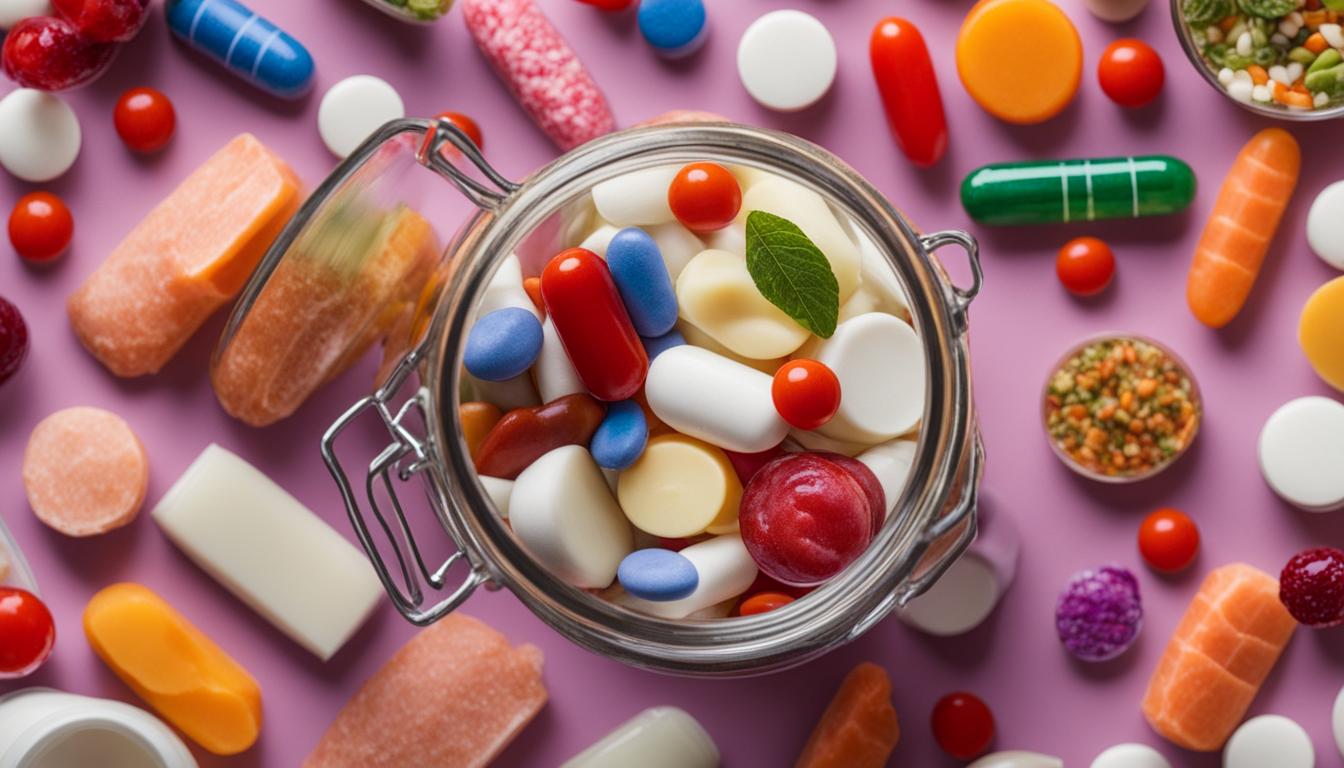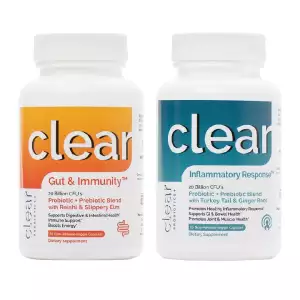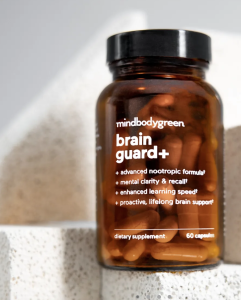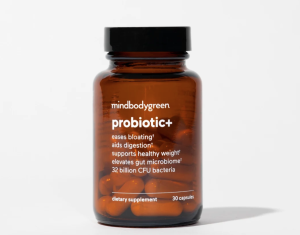Table of Contents
ToggleRestoring your gut health after antibiotic use is essential, and probiotics play a key role in this recovery process.
While antibiotics are necessary for battling bacterial infections, they often leave your gut flora compromised by eliminating both harmful and beneficial bacteria.
This guide offers insights into the best probiotic strategies to help replenish the good bacteria your body needs to maintain optimal health.
Through practical tips on incorporating probiotic-rich foods and supplements, you’ll learn how to enhance digestion, boost your immune system, and ensure a smoother return to well-being.
Key Takeaways:
- Antibiotics can have harmful side effects on your gut by wiping out beneficial bacteria.
- Probiotics play a crucial role in antibiotic recovery by replenishing the beneficial bacteria in your gut.
- Taking probiotics during and after antibiotics can help accelerate the recovery process and prevent digestive issues.
- Choosing the right probiotics and following the recommended dosage are essential for optimal results.
- In addition to probiotics, maintaining a balanced diet, managing stress, and staying hydrated are important for gut health.
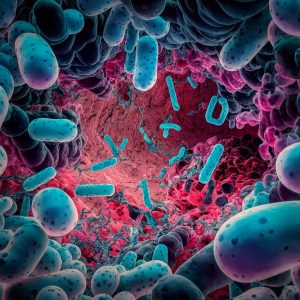
Understanding the Impact of Antibiotics on Your Gut
While these medications are essential for combating bacterial infections, they can unintentionally harm your gut health by disrupting its bacterial balance.
This disruption often leads to side effects such as diarrhea, queasiness, cramping, and bloating, which can throw your digestive system off balance.
Excessive or unnecessary use of antibiotics can destroy both harmful and beneficial bacteria, creating an imbalance.
This situation may allow harmful bacteria to flourish, raising the risk of infections and other health problems.
Furthermore, the misuse of antibiotics contributes to the rise of antibiotic-resistant bacteria.
These bacteria adapt to the drugs designed to kill them, leading to infections that are increasingly difficult to treat and posing a serious threat to public health.
To mitigate these risks, it’s important to use antibiotics only when absolutely necessary and under the guidance of healthcare professionals.

The Importance of Probiotics in Antibiotic Recovery
Taking antibiotics can be a double-edged sword: they effectively combat harmful bacteria causing infections but also deplete the beneficial bacteria in your gut, disrupting your microbiome.
This can result in digestive issues and a weakened immune system.
However, incorporating probiotics into your regimen during and after antibiotic treatment can significantly mitigate these effects.
Probiotics replenish the beneficial bacteria, restoring balance to your gut microbiome and supporting a holistic recovery from antibiotics.
They accelerate the recovery process, prevent digestive problems, and enhance your overall gut health.
These live bacteria and yeasts, found in fermented foods like yogurt, kefir, and kimchi, as well as in supplements, play a vital role in post-antibiotic recovery.
They restore the diversity of the gut microbiome, boost the immune system, enhance digestion and nutrient absorption, and reduce antibiotic side effects such as diarrhea.
By maintaining the balance of good bacteria in your gut, probiotics not only improve your chances of a full recovery but also safeguard your well-being against future health issues.
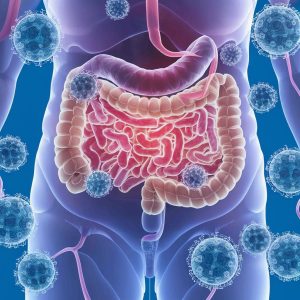
When to Take Probiotics with Antibiotics
Generally safe, combining probiotics with antibiotics can help mitigate their harmful effects on your gut flora.
Taking probiotics during your antibiotic course can help counteract the disruption caused by antibiotics to the natural balance of gut bacteria, often leading to unpleasant symptoms and potential detox effects.
By introducing probiotics, you actively work towards restoring your gut’s equilibrium and minimizing any withdrawal symptoms from antibiotics.
For the best results, experts recommend spacing out the intake of antibiotics and probiotics by a few hours.
This timing ensures antibiotics can perform their intended function without diminishing the probiotics’ effectiveness, giving both the best chance to benefit your health.
Keep a close watch on how your body responds to the combination of antibiotics and probiotics throughout your treatment.
Strategic use of probiotics supports your gut health during and after antibiotic therapy, aiding in a smoother recovery process.
The Best Probiotics for Antibiotic Recovery
To recover from antibiotic use and manage the symptoms of antibiotic withdrawal, it’s crucial to replenish the good bacteria in your gut.
Here are several effective methods to help restore your gut health:
- Incorporate Fiber-Rich Prebiotic Foods: Adding vegetables, legumes, fruits, and whole grains to your diet nourishes and promotes the growth of beneficial bacteria in your gut.
- Opt for Probiotic Supplements: Seek out supplements containing effective strains like Saccharomyces or Lactobacilli, which are known to restore gut health and boost the population of good bacteria.
- Include Fermented Foods in Your Diet: Foods like yogurt, kimchi, and sauerkraut, rich in live cultures, further encourage the growth of beneficial gut bacteria and contribute to a balanced gut microbiome.
Adopting a holistic approach that combines prebiotic foods, probiotic supplements, and fermented foods is key to rebuilding your gut health after antibiotics.
This comprehensive strategy is designed to maximize the replenishment of beneficial bacteria, supporting your overall well-being.
Supporting Gut-Brain Health during Antibiotic Recovery
Understanding the complex connection between your gut and central nervous system, known as the gut-brain axis, highlights the importance of gut health for both your brain’s wellness and mental state.
During antibiotic recovery, actively caring for your gut not only supports brain health but also enhances mood, cognition, and emotional well-being.
The beneficial bacteria in your gut produce essential brain chemicals, and a balanced gut microbiome contributes to lower illness risks, better mental health, and improved cognitive functions.
To promote your overall well-being during antibiotic recovery, it’s crucial to support your gut-brain health.
Integrating probiotics into your routine, eating a balanced diet, and adding fermented foods to your meals can nourish your gut microbiome.
This approach ensures you reap the benefits of a healthy gut-brain axis, fostering a sense of well-being and supporting your body’s recovery process.
The Role of Probiotics in Preventing Complications After Antibiotics
Taking probiotics during and after your antibiotic treatment plays a vital role in safeguarding against complications, such as the often-disruptive antibiotic-associated diarrhea.
This proactive approach helps you avoid this uncomfortable condition and ensures a smoother recovery process.
Probiotics achieve this by replenishing your gut with beneficial bacteria lost during antibiotic use, maintaining a healthy gut environment and preventing harmful bacteria from gaining a foothold.
Moreover, probiotics not only prevent diarrhea triggered by antibiotics but also protect against secondary infections.
They counteract the imbalance caused by antibiotics, which can leave your immune system vulnerable to opportunistic pathogens.
By boosting the beneficial bacteria in your gut, probiotics strengthen your defense against these opportunistic infections and support a robust immune response.
Don’t forget, probiotics contribute to the fight against antibiotic resistance, a growing public health concern.
The misuse and overuse of antibiotics have led to the emergence of antibiotic-resistant bacteria.
Incorporating probiotics into your antibiotic regimen can help maintain a diverse and healthy gut microbiome, thereby mitigating the risk of antibiotic-resistant bacteria flourishing.
Their critical role in preventing antibiotic-associated diarrhea, warding off secondary infections, and combating antibiotic resistance makes probiotics an indispensable part of a holistic recovery and health maintenance plan.
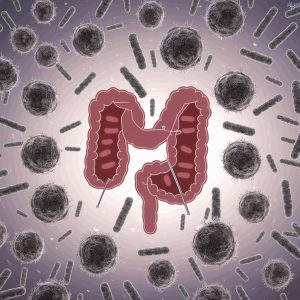
How to Take Probiotics with Antibiotics for Optimal Results
Incorporating probiotics into your regimen is crucial for natural antibiotic recovery, ensuring you maximize their benefits by understanding the effective combination of probiotics with antibiotics.
A key strategy involves waiting at least two hours after taking antibiotics to consume probiotics, preventing any interference with the antibiotics’ functions.
This separation maximizes the effectiveness of both treatments, enabling your body to fully harness the restorative power of probiotics.
Another effective approach is taking probiotics before bedtime, providing your gut with continuous support for optimal recovery during sleep.
This uninterrupted rest period enhances the probiotics’ ability to aid in natural antibiotic recovery and rebalance your gut microbiome.
Choosing high-quality probiotic supplements from reputable brands is essential.
Look for products specifically designed for antibiotic recovery, containing strains proven to replenish gut flora effectively.
Adhering to the manufacturer’s recommended dosage ensures optimal results.
Supporting your body’s healing processes is key to a successful natural antibiotic recovery.
By adding probiotics to your post-antibiotic routine and adhering to these guidelines, you can enhance their benefits and foster a healthy gut microbiome.
Practical Tips for Rebuilding Your Gut Health After Antibiotics
In addition to taking probiotics, there are other steps you can take to rebuild your gut health after antibiotics. By implementing these practical tips, you can support your gut recovery and promote overall well-being.
- Eating a balanced diet is crucial for gut health recovery. Make sure to fill your meals with a variety of nutrient-rich, prebiotic-packed foods such as vegetables, fruits, whole grains, legumes, and other fiber-rich options. These not only nourish the beneficial bacteria in your gut but also support their growth and maintain a healthy gut microbiome.
- Add fermented foods to your diet, including yogurt, kimchi, sauerkraut, and kefir. Packed with probiotic bacteria, these foods aid in replenishing and diversifying your gut flora, thus enhancing your overall gut health.
- Cut back on excessive sugar and processed foods. Consuming too many sugary and refined foods can harm your gut health by fostering the growth of harmful bacteria and upsetting your gut’s natural balance.
- Manage your stress levels actively. Chronic stress negatively affects your gut, so integrating stress-management practices like meditation, yoga, or deep breathing exercises into your daily life is vital for a healthy gut-brain connection.
- Ensure you’re getting enough sleep. Quality sleep is foundational to your overall health, including that of your gut. Aim for 7-9 hours of uninterrupted sleep each night to facilitate the best gut recovery.
- Stay hydrated throughout the day. Drinking enough water is fundamental for proper digestion and maintaining a healthy gut, supporting optimal function and recovery.
By following these practical tips, you can support your gut recovery and promote overall well-being after antibiotic use.
A Word from HealthyVibe
Recovering from antibiotic use is crucial for restoring your gut health and enhancing overall well-being.
To bounce back effectively, focusing on replenishing your gut with beneficial bacteria and achieving a balanced microbiome is key.
Taking probiotics stands out as a highly effective method to support this recovery, helping to restore the healthy bacteria that antibiotics may have eliminated.
Incorporating probiotics into your recovery plan not only speeds up the return to a healthy gut but also minimizes the chances of experiencing digestive problems.
It’s vital, however, to understand that probiotics are part of a broader, holistic recovery strategy.
A diet rich in prebiotics, including vegetables, legumes, fruits, and whole grains, plays an essential role as well.
Furthermore, managing stress and embracing healthy habits, such as regular exercise and getting enough sleep, are fundamental for maintaining gut health.
In summary, taking a comprehensive approach to antibiotic recovery, which includes probiotics, a nutritious diet, and positive lifestyle changes, is instrumental in optimizing gut health and ensuring your overall well-being.
Proactive measures to rebuild your gut microbiome are crucial for maintaining its health and vitality over the long term.
FAQ
Can probiotics help with antibiotic recovery?
Yes, probiotics can help with antibiotic recovery by replenishing the beneficial bacteria that were killed by antibiotics, promoting overall gut health and restoring balance in the gut microbiome.
What are the side effects of antibiotics on the gut?
Antibiotics can have side effects on the gut, including diarrhea, queasiness, cramping, and bloating. They can also disrupt the balance of good bacteria and contribute to antibiotic resistance.
Can I take probiotics with antibiotics?
It is generally safe to take probiotics with antibiotics. However, it is recommended to consult with your doctor before starting any new health strategies. Probiotics can be taken during the course of antibiotics to counteract the detrimental effects on the gut bacteria.
How can I replenish good bacteria after antibiotics?
There are several ways to replenish good bacteria after antibiotics. Consuming prebiotic foods rich in fiber, taking probiotic supplements, and adding fermented foods to your diet can all support the growth of beneficial bacteria.
How does gut health affect the brain?
The gut-brain axis is a complex connection between the gut and the central nervous system. Taking care of your gut health during antibiotic recovery is important for brain health and mental well-being. A healthy gut microbiome is linked to reduced illness risks, improved mental health, and better cognitive function.
Can probiotics prevent antibiotic-associated diarrhea?
Yes, probiotics can help prevent antibiotic-associated diarrhea, a common complication of antibiotic use. They also reduce the risk of secondary infections and prevent the spread of antibiotic-resistant bacteria.
When is the best time to take probiotics with antibiotics?
It is recommended to wait at least two hours after taking antibiotics before taking probiotics. This allows the antibiotics to work without interfering with the effectiveness of the probiotics. Taking probiotics before bedtime can ensure continuous support for gut health throughout the night.
What else can I do to rebuild gut health after antibiotics?
In addition to taking probiotics, you can support gut health by eating a balanced diet that includes prebiotic foods and fermented foods. Avoiding excessive sugar and processed foods, managing stress, getting enough sleep, and staying hydrated are also important for overall gut health.
How do probiotics help in antibioitc recovery?
Probiotics play a crucial role in antibiotic recovery by replenishing the beneficial bacteria that were killed by antibiotics, restoring balance in the gut microbiome, and promoting overall gut health.

